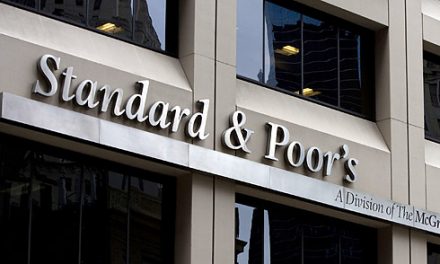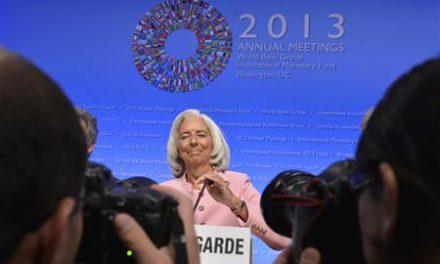David Goodman & Lucy Meakin, Bloomberg
As Morgan Stanley strategists give up on Greek sovereign bonds, there’s at least one investor who says he’s determined to ride out the storm.
Paul Kazarian, the founder of Japonica Partners & Co., is unruffled by a standoff between Greece’s government and the organizations behind the country’s bailout loans. He’s actually becoming more optimistic about Greece’s future, saying the current turmoil is caused by a deliberate short-term cash crunch, and the longer-term debt picture is more positive.
“We haven’t sold anything and we’re not planning to,” Kazarian, whose firm bought Greek securities in 2013, said in an interview in London. “Greece is now suffering from a contrived liquidity squeeze. They don’t have a debt problem, they have a management challenge.”
Kazarian’s view puts him at odds with UniCredit SpA’s chief global economist, Erik Nielsen, who said on March 15 that he was “throwing in the towel” on Greece. Morgan Stanley strategists this week removed Greek bonds from their list of top trades for 2015. Both banks cited an increased risk that Greece will exit the euro area.
Unable to access bailout funds and locked out of international capital markets, Greece faces more than 2 billion euros ($2.1 billion) in debt payments Friday. Negotiators from the country are holding out for a deal at a European Union summit starting Thursday to unlock a payment from its 240 billion-euro rescue package, European officials with direct knowledge of the situation said on Tuesday.
Inverted Curve
The nation’s three-year note yields ended Tuesday at 20.43 percent, the highest close since Feb. 11, as the price of the securities sank to 70.6 percent of face value.
Its 10-year rate was at 10.81 percent. Lower yields on longer-maturity bonds, known as an inverted yield curve, may indicate investors are more concerned about a short-term crisis than the longer-term financial outlook. The 10-year yield reached more than 44 percent in 2012, when Greece carried out the biggest debt reorganization in history
While yields have surged this year, for bondholders such as Japonica or Greylock Capital Management LLC, profits on Greece’s securities could be lucrative.
Greek debt returned more than 200 percent since the March 2012 restructuring, according to the Bloomberg Greece Sovereign Bond Index, the best performance among developed markets.
Greylock, which has about $870 million under management, has retained its Greek government securities amid the rising tension, founder Hans Humes told Bloomberg Television last week.
Accounting Standards
The potential for longer-term rewards means short-term stress is of less concern to Kazarian, a former Goldman Sachs Group Inc. banker. Rather, he said he dedicates his time trying to bring the official account of Greece’s debt load closer to his own view, arguing that the current method of measuring public finances overstates the level of indebtedness.
If it were subjected to corporate accounting standards, he said, Greece’s debt load would fall to 32.6 billion euros, from more than 300 billion euros under the current way used to measure its obligations. The difficulty the nation faces is that it lacks skilled administrators to audit the accounts, Kazarian said.
The Providence, Rhode Island-based investor, who said he presented his views to government officials, rating companies and the Organisation for Economic Cooperation and Development, is convinced that argument is starting to gain traction. The Syriza-led government elected in January has made “more positive movement in the past 30 days than the past three years with the other guys,” he said in the interview on March 3.
Unreliable Figures
Kazarian also highlighted support coming from outside of Greece. A Feb. 24 letter to German lawmakers that was signed by Kurt Lauk, head of the economic council of Angela Merkel’s Christian Democratic Union party, said that “no reliable figures” for Greek debt were available, and, if the nation were subject to corporate-accounting measures, the debt load would be “significantly lower” than the nominal amount.
European Central Bank President Mario Draghi told Greek officials at a meeting in Brussels on March 9 that they must let euro-area representatives return to Athens and examine the government’s books if they are ever going to obtain more aid, according to two European officials. Representatives from the European Commission and International Monetary Fund had a similar message, one of the officials said.
‘Misstep’ Risks
Kazarian declined to say exactly how much money Japonica invested in Greek bonds after its tender for as much as 4 billion euros of the securities in 2013.
Few share his optimism. While an exit from the euro area is not the bank’s base scenario, the risk of a policy “misstep” that forces Greece’s departure is increasing, Morgan Stanley economist Daniele Antonucci wrote in a report on Tuesday. Morgan Stanley now sees the chance of an exit at one in three, from one in five previously, and the country may struggle to repay loans from the IMF and bonds held by the ECB in July and August, Antonucci wrote.
That call came just days after UniCredit’s Nielsen said he had changed his view on Greece, and the nation should either sign up to economic policies demanded in return for aid or “get ready to leave” the currency bloc.
“Fortune favors the brave,” said Charles Diebel, London-based head of macro strategy at Aviva Investors, which manages about 241 billion pounds ($355 billion) and doesn’t hold Greek bonds. “If they redeem at par then happy days, you’ve made a fortune. That’s the big payoff.”



















